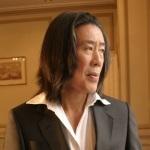Exploding enclosures in Africa and Europe (on Charlie Hebdo and Boko Haram) – By Stephen Chan

 This is the first of two essays on the theme of Islam in Europe and Africa. The second will appear after the Nigerian elections of 14 February and assess their possible impact on the war against Boko Haram.
This is the first of two essays on the theme of Islam in Europe and Africa. The second will appear after the Nigerian elections of 14 February and assess their possible impact on the war against Boko Haram.
Paris was the city where Frantz Fanon found his intellectual vocation. The political vocation had already been found as a young doctor amongst the Algerian diaspora in Marseilles. But it was Paris that shaped the expression of his thought and, in some ways, hijacked it. It was Jean-Paul Sartre’s preface to Fanon’s Wretched of the Earth that introduced the image of the coiled native waiting to explode outwards with his bomb – explode indiscriminately because of years of very precise discrimination against his skin, his African-ness, his tropical blackness. Whether Fanon meant to be the purveyor of the image of the suicide bomber is another question.
His book is, for the most part, a series of psychoanalytic case studies of trauma induced by colonial persecution. Like his earlier book, Black Skin, White Masks, it was half medical text and half political condemnation and exhortation. But, in Black Skin, White Masks, he had made a call for equality, for an end to the master-slave dichotomy, and for black persons to take their places alongside Hegel and Tchaikovsky in terms of globally-recognised intellect and creativity.
Fanon did not want a better ghetto. He wanted the same penthouse in the metropole that, hitherto, only the colonial masters inhabited. His now forgotten essays on French politics and political figures showed how closely he followed and understood the French situation. There was almost nothing generalised about his critique of France. It was work from close and specific observation.
Like the work of his fellow expatriates in Paris, exiles but invited into the circles of Sartre and Breton, what Fanon, Shari’ati from Iran and Senghor from Senegal accomplished was the idea of a future based on equality and a fusion of all that was best, on equal terms, of seemingly disparate cultures. The difference between them and modern European multiculturalists was the insistence that it was the “˜Other’ that chose the terms of fusion – not polite and middle-class well-meaningness in the 5th and 6th arrondissements.
Shari’ati made a fusion of existential thought, Rumi-esque transcendence, and modes of European church organisation for his Iranian platform for change. Senghor seemed in his doctrine of negritude to fetishise precisely the circumscriptions of the black person by white observers – they can dance and sing very well – but, along the way, demonstrated how complex was the grammar of African rhetoric and poetry – of African speech, of “˜parole’ as well as “˜langue’; but, subversively, he used European grammatical terms to demonstrate how the European denigration of the African had to fall on its own sword. The origins of global dissent in Paris were precise and sophisticated.
When we fast-forward to the Paris of early 2015, we come at once to a seeming twin of a northern Nigerian town – Chibok, for instance, where hundreds of school girls were kidnapped by gunmen who considered their education a violation of Islamic norms; and other towns where gratuitous slaughter has accompanied slogans that declare that Allah is great. The rampaging murders of Boko Haram came suddenly to visit Paris on 7 January 2015, when two gunmen assassinated many of the editorial staff of Charlie Hebdo – in some ways a uniquely French magazine with its overstated and grossly unsubtle satire; a satire so gross it can be called gratuitous and lazy. Granted that this form of French humour does not translate and travel well outside France, but it did not travel well in France itself, the magazine having a circulation of only 60 000 per issue. But the assassinations, carried out because many of the cartoons offended Islamic norms, bore the same justifications as the attacks on schoolgirls and villagers in Nigeria. There are questions here to do with norms and great violence.
Charlie Hebdo
The cartoons the magazine carried about Islam and about Mohammed seemed persistent, but were not always successfully insulting. Some were quite flat and fell short of satire or any effect at all. All main religions were satirised – Christian, Jewish, as well as Islamic – and probably the most blasphemous was a cover where God is being sodomised by Jesus the Son, while Jesus is being himself sodomised by the Holy Spirit. God and Jesus are clearly about to achieve orgasm – although it was clearly harder to depict a Holy Spirit about to come. There seemed no real purpose for such a cartoon, apart from a determination to insult religion or indicate the ludicrous sanctimoniousness within religious belief.
French political figures were, however, more prominent on the covers than religious stereotypes. But, insofar as anti-religious expressionism was a hallmark of Charlie Hebdo, it could claim a conscious echo of Voltaire, whose running battles with clerical authority were legendary. It is precisely Voltaire who is held up as the enunciator of a norm, behind which French society declared itself mortified by the actual deaths of the Charlie Hebdo journalists and the four Jewish supermarket shoppers who died in a related incident. The questions are: is the Voltairean liberty to speak freely also a licence to insult without specific purpose? If insult is given, is it appropriate to respond by killing people for drawing cartoons? Of course, assassination is by far the greater offence, but there is a matter of proportion on each side. Is there a proportion of liberty that must be self-aware, i.e. not give itself over to a flaunting of liberty in gratuitous insult? And is murder not disproportionate in almost every case of human interaction today?
The ironic and other interconnections of the events of 7 January will ring for some time. The self-declared partner of “˜Charb’, the cartoonist and editor of Charlie Hebdo, is herself, like her partner’s assassins, of Algerian descent; she is an atheist, although her father was a Muslim; however, as a public figure in her own right – she has been a junior government minister and is a law professor in an elite Paris institution – she has been ardently secular and questioned the possibility of a moderate Islam.
On the other hand, a Muslim policeman was killed by the assassins, and a Muslim employee at the supermarket saved the lives of several Jewish shoppers by hiding them in a cold store. There are two things here: first, the saving of life is an act of human solidarity, and this contrasts markedly with killing specific people in the name of God, religion and the upholding of norms; second, Charlie Hebdo may have been a marginal magazine in many ways, but it was linked to the high political establishment in much the same way that Simone de Beauvoir depicted in her novel, The Mandarins, on the incestuous nature of the political and intellectual elite of post-war Paris. It was inevitable that France, led from the top, would come out for Charlie Hebdo.
Chibok in Nigeria
The top of Nigerian political society, President Goodluck Jonathan, has certainly not come out in any urgent or meaningful way on behalf of the kidnapped schoolgirls or the murdered civilians of the northern cities and villages. In his original view, he saw Boko Haram as a tool of his northern political rivals. While there was certainly some early truth in that, the terrorist group has long morphed into something else, and the question is how a president can make calculations to do with preventing his rivals from amassing political advantage while his own citizens suffer and die.
The key difference in operational response between France and Nigeria is that, once the French security forces swung into action, the assassins had no chance. A polished, state-of-the-art and deadly machine went into action. By contrast, political decisions not to fund the Nigerian military adequately – for fear of encouraging another in the long history of military coups – left the army woefully ill-equipped to fight Boko Haram.
This is not unique to Nigeria. Across the world – in Syria and Iraq with Islamic State; in Somalia with Al Shabab; in Mali (until the French stepped in) – Islamic insurrectionaries have not only been better equipped in terms of firepower and mobility than government forces, but have seemed better disciplined and fighting under operational doctrines that have left their opponents unable to respond. The official armies of Africa and the Middle East are as out-of-date as they are under-equipped – and this speaks volumes not only of their leaders but of their suppliers and trainers in Europe and the United States. What kind of tawdry second-class effort is in fact this fight against terrorism?
The Banlieue and the Global Age
France has 5 million Muslim inhabitants. On the day that Paris hosted many world leaders to boast defiance of the terrorist threat to liberty, 11 January, Croatia, the newest member of the EU, held presidential elections. There are more Muslims in France than people in Croatia. Those 5 million are largely Sunni and are part of one billion Sunnis in the world. A large proportion of the Muslim French population are descended from the former French colonies, particularly Algeria, and the two gunmen who attacked Charlie Hebdo were of Algerian descent. A huge number of their fellow North African Muslims live in the Banlieue suburbs of the great French cities of Paris and Marseilles. Unemployment, under-education, and deprivation are all part of the enclosure of the Banlieue.
Insofar as Algerian descent is a factor in the discontent of the Banlieue – and Fanon found his sense of solidarity with exactly the Algerian diaspora in France, and never lost it – the terrible French repression of the Algerian independence movement established the tone of a relationship that, a generation after, has not fundamentally changed – but has been added to by poverty and the global movements in Islamic discontent. In this sense, what has happened in France with the events of 7 January are both intimate to French history and part of something in the world that France by itself can do nothing about.
That something in the world has been felt elsewhere – in London for instance on 7/7 where, without a single offensive cartoon in sight – assassins blew up many citizens. It was felt in Paris itself in 1995, where the civil war in, ironically, Algeria spilled over into the student quarter of Paris with the bombing of the St Michel Metro station. In a way, cartoons, offensive, gratuitous or not, may have nothing to do with a global confrontation. To say this, do we play into the hands of Western commentators like Samuel Huntington of the “˜Clash of Civilizations’; or who cannot think in more sophisticated terms than two-actor games, dyadic or dichotomous world analyses where, like little boys, they calculate how much throw-weight either side has?
The World According to Garp
Garp, in the Tom Hanks film, was a simple man. He’d have liked the world to get along. We would too. But it is not simply a world of the West and Islam. There are many Islams and, of course, Sunni and Shia are battling it out in the terrible war propagated by Islamic State against the non-Sunni inhabitants of Iraq. But there is a point to be made: despite terrible tensions between Iran and the US, there has never been a major Shia incident of terrorism against the West. Iran may play diplomatic brinksmanship, but it has reined in its clerical firebrands in a way that the Sunni world simply cannot. The Sunni world is larger and it has multitudinous discontents – and targets. Insofar as the West has waged war against Sunni leaders and regimes, the West becomes part of a target network – but Boko Haram makes war against Sunni Muslim political leaders in Northern Nigeria as much as against Goodluck Jonathan.
How this will pan out in Nigeria will be the subject of an essay after the Nigerian elections of 14 February. For now, even the trashiest of cartoons does not deserve death sentences. France should stand by its values of freedom – although an English citizen might wonder whether there could be a place for Gallic restraint – and Muslim citizens are still citizens of France. The true test of French liberty and, above all, that second of the qualities espoused by the French revolutionaries after liberte’, that of egalite’, will be what France does to help them out of the Banlieue.
Stephen Chan is Professor of International Relations at the School of Oriental and African Studies (SOAS), London.







I still just don’t undesratnd how Nigeria is not bringing closure to Boko Haram.